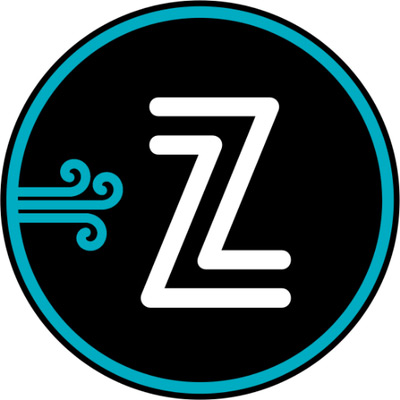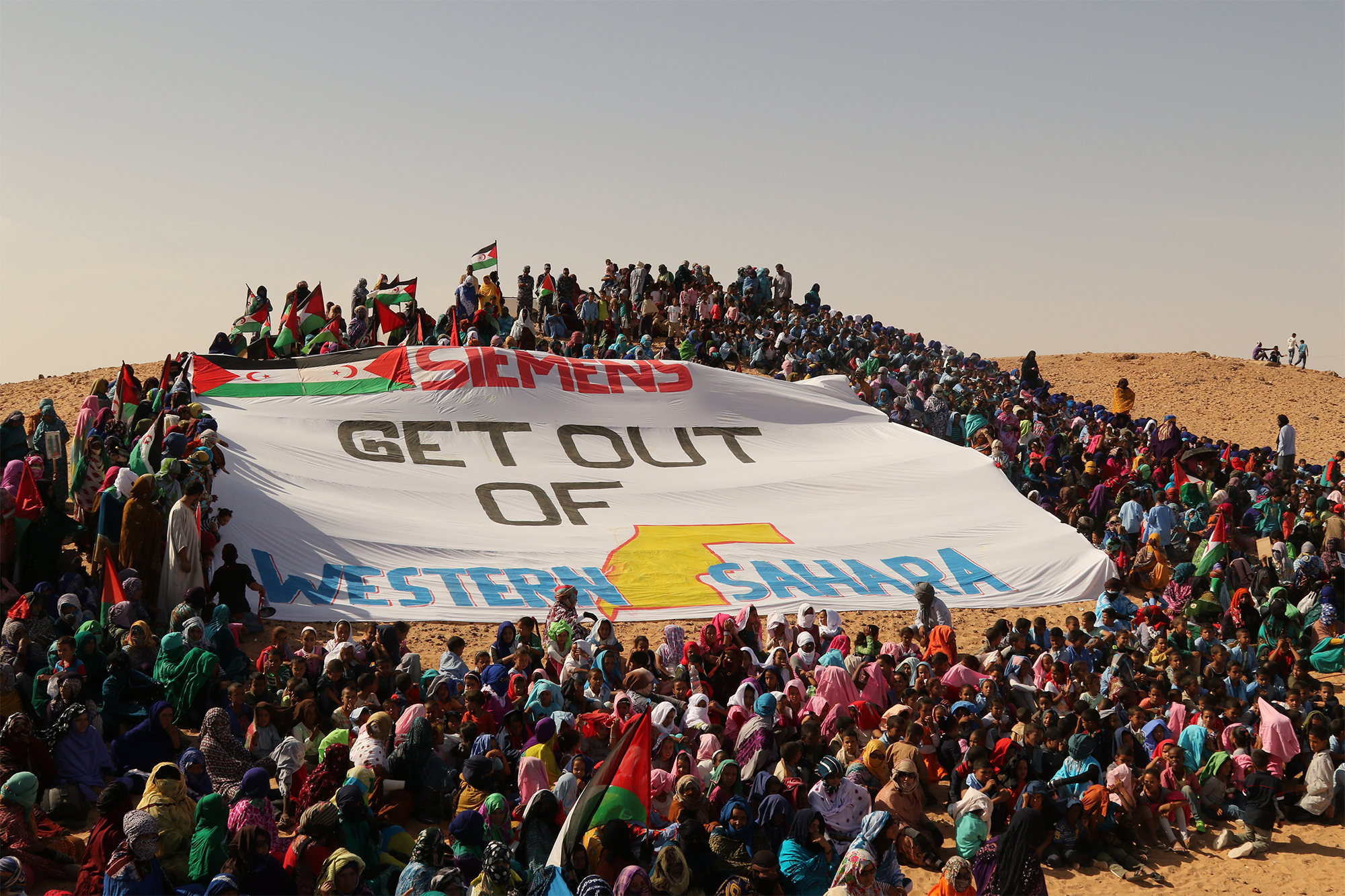Chronicle of an announced death
- "On the day they were going to kill him, Santiago Nasar rose at 05:30 in the morning to wait for the ship where the bishop arrived. As he waited, he pulled out the transistor he was carrying in his left pocket and started listening to the news. The referendum in Western Sahara would not be held in 1998. Santiago Nasar knew that it was no longer going to be done, that it was like dreaming of trees in the desert.”

But in favour of peace, all possibilities must be exhausted, because a small people who know the war know very well what the war is... Nobody can say that they have not been stubborn on that road: although they have seen nothing on the horizon on the road to peace, they have continued to walk for 22 years.
In 1975, the Spanish State handed over the Western Sahara to Morocco and Mauritania, and thus the lives of the Sahrawi people. Morocco carried out a genocide, bombing civilians with napalm and white phosphorus. Four years later, in 1979, there were changes in the internal situation of Mauritania and it withdrew from the war (after a change of government, it became an ally of the Sahrawi Democratic Arab Republic). Since then the conflict has been a direct confrontation between the Sahrawi people and the kingdom of Morocco.
Conditioned by the state of war of the early years, the occupants had only 20% of the territory under control, which led them to take another step: Construction of a 2700-kilometre military wall (the largest currently functioning military wall in the world). The objective of this wall, like that of the same occupation, is economic: to control the west of the people, that is, the richest part, in order to be able to exploit it economically (fishing, minerals, capital control…). This led Morocco to a war of wear, as by the end of the 1980s it spent about $5 million a day on the preservation and maintenance of the wall, not to mention the number of soldiers who lost their lives.
It was Morocco that started making the first moves towards a peace agreement. In the presence of several intermediaries, the Polisario Front decided to negotiate and both sides agreed on three points:
1. Ceasefire
Morocco has not done so. Thousands of Sahrawi people live in the occupied areas, that is to say to the west of the wall, and in the last 29 years it has also harassed its inhabitants with brutal repression. There are hundreds of deaths, thousands of prisoners, tortured, raped… The future has been no more than the last drop: the Moroccan army has surpassed the wall, entered the demilitarized zone and attacked civilians. Therefore, we do not come from a “state of peace that has lasted 29 years”, nor from a genuine “truce”: on the front the two armies do not shoot, but that does not mean, much less, that there is peace.
2nd Census
Complete the list of citizens who could participate in the referendum on self-determination. Morocco has never accepted any censor.
3. Holding of the referendum.
No referendum has been held. The date was last set on 7 December 1998, but the ballot boxes could not end the conflict.
Economic theft. Morocco does not have the right to market raw materials in Western Sahara, but it has been doing so since day one. I guess it has shoppers. Many of them in Europe. If you want to learn more about the topic, visit the Western Sahara Resource Watch website. One of the last companies referred to, for example, is Siemens Gamesa. How will the new situation affect this looting economy? At the moment, the Polisario Front has warned that the land of Western Sahara, as well as the sea, is a war zone. Are there Basque companies currently engaged in illegal economic activity on this land in the process of decolonization?
The Moroccan army is one of the most powerful regular armies in North Africa. But it was 45 years ago, and not even then did it succeed in defeating a small, poorly armed, popular army. It has been 29 years since the last battle on the battlefield, but a similar situation may arise: that the Sahrawi people cannot beat the Moroccan army and vice versa. This conflict is condemned to a negotiating table. But the next time you sit down, I would say that the Polisario Front will not be content with the political will, and that the United Nations cannot put the same plan that they put on the table in 1991. The defeat of the United Nations in Western Sahara has been total, according to the NGO.
This brings us to another question: Is this hardening of the conflict going to be a matter of a few weeks, or has it gotten into a cycle of armed years? The Sahrawi people have been waiting for 29 years for what was owed to them, and when they have started firing, their eyes have been turned on the world. It is a sad lesson, and if the referendum is not held this time (Morocco and France will not allow it) the situation can last a long time. That is the most real option, because the United Nations has lost all credibility and therefore cannot make reasonable proposals at this time for the peace plan to proceed.
A small note. In 1956, France recognized Morocco’s “independence”. In Algeria, however, there was a bloody war of eight years and hundreds of thousands of deaths. Why? Because Algeria is independent, truly independent… Unlike Morocco.
Morocco presents itself as a democratic country when the dictatorship is feudal. Pulling the idea of the Holy Trinity can very well explain its reality. Mohamed VI is the King of Morocco Almighty. Mohamed VI is the Moroccan head of state who embodies the “Greater Morocco”, the imperial dream. And Mohamed VI says that he is the heir of the prophet Mohamed (Muhammad) and, therefore, the leader of Islam in the country. That is, for a Moroccan, to oppose Mohamed VI is to attack the monarchy, the state and God. In a place where 32.2% is illiterate (data from the Spanish government), the majority in a country with a very low educational level, in a territory that is negligible in democratic freedoms … Moroccans are the biggest victims of their king, because millions have had to go abroad to have a dignified life; but, with exceptions, they are not enemies who have condemned their children to hunger … but Saharawi. To see when they realize that the Moroccan soldiers on the wall do not have the enemy in front, but behind their backs. See when he turns around the tortilla.
Another of the most responsible parties is the Spanish State, which was a colonizing force for almost a hundred years. The current situation in Western Sahara is the responsibility of the various Spanish Governments that have taken place throughout the twentieth century. What best summarizes what the Spanish governments have done is the speech made by Felipe González in 1976: on the one hand, and then what they have done, that is to say, to entrench the Saharawi people and to support Morocco, politically and economically. In Gernika he said “Gora Euskadi Askatuta”, from his hand, UNTIL THE FINAL VICTORY:
It is clear with whom France is going to position itself. How is the current Spanish Government going to act? We have always been in favour of a process of self-determination in Western Sahara. What weight will this issue have in the PSOE-Podemos government? Are they going to turn their backs on the Sahrawi people?
On the other hand, how are the Basque Government and foreign governments going to act? What position will you take with the companies that are illegally plundering Western Sahara? The question is quite rhetorical, I know. The boats from Euskal Herria will go to fishing in the Sahara paying the quota to Morocco, and then, as a charity, they will send tuna cans to the refugee camps.
Finally, how will the international context this time affect the conflict? In the last era of war, the Soviet Union still existed. Now China is the leading player in the world and in Africa, there is war in Yemen, Syria, Libya is not Gaddafi, immigration across Sahara lands, South America has been a process of fruitful social sovereignty, referenda have been held in Scotland and Canada, a unilateral referendum has been held in Catalonia… and the world is in the midst of a pandemic.
This war has been the chronicle of an announced death. And all for not allowing a people to express their will in a free and democratic referendum. Violence? State violence.
Harea-erloju baten bidez irudikatu ohi da denboraren joana. Ospatu berri dugu Saharako Errepublika Arabiar Demokratikoak 49 urte bete dituela iragan den otsailaren 27an. Urte hauetan guztietan, harearen pisuak ez du oraino estali Saharako populuaren askatasun-nahia eta... [+]
The girl who appears in the center of photography, which can hardly be considered historical, is writing a list of adjectives: I, you, he, we, you, they. Looking down, I couldn't see what his gaze looked like.
Insensitive to the work of the photographer, you, slowly and... [+]
Leaving behind books, libraries and their benefits in April, Kabiak Sahrawi wishes to recall the dark side of his history, which is of greater importance in defending the identity and survival of peoples. We are talking about the destruction of the age-old and usual libraries... [+]
Sahara, herri bat erresistentzian liburua argitaratu du Kristina Berasainek. Urte luzez jarraitu du Mendebaldeko Saharako gatazka, 2005ean BERRIA egunkariko kazetari gisa lurralde okupatuetara lehen aldiz bidaia egin zuenetik.
The Spanish Foreign Minister denies that Spain is the administering power of the Western Sahara. But yes.
For years, Spain said that it was neutral on the Sahara issue, albeit a lie: it was very partial. For Morocco. The Palestinian National Power has a diplomatic mission in... [+]










, Nafarroako parlamentuan..jpeg)









